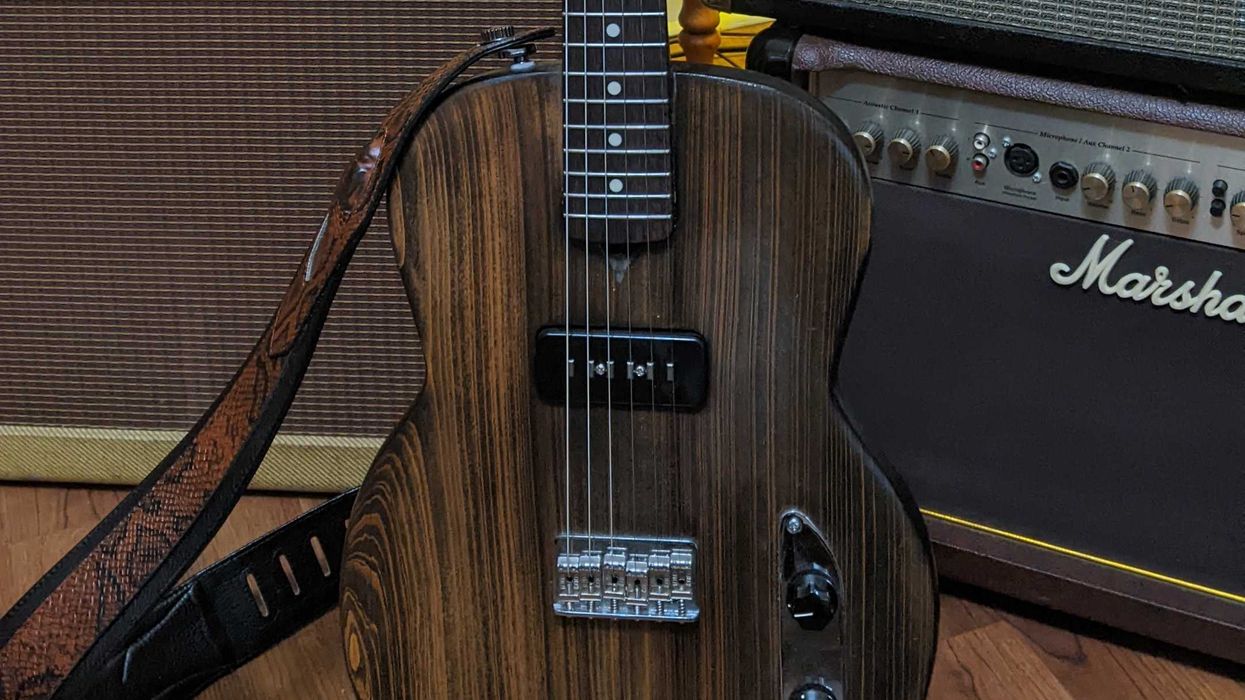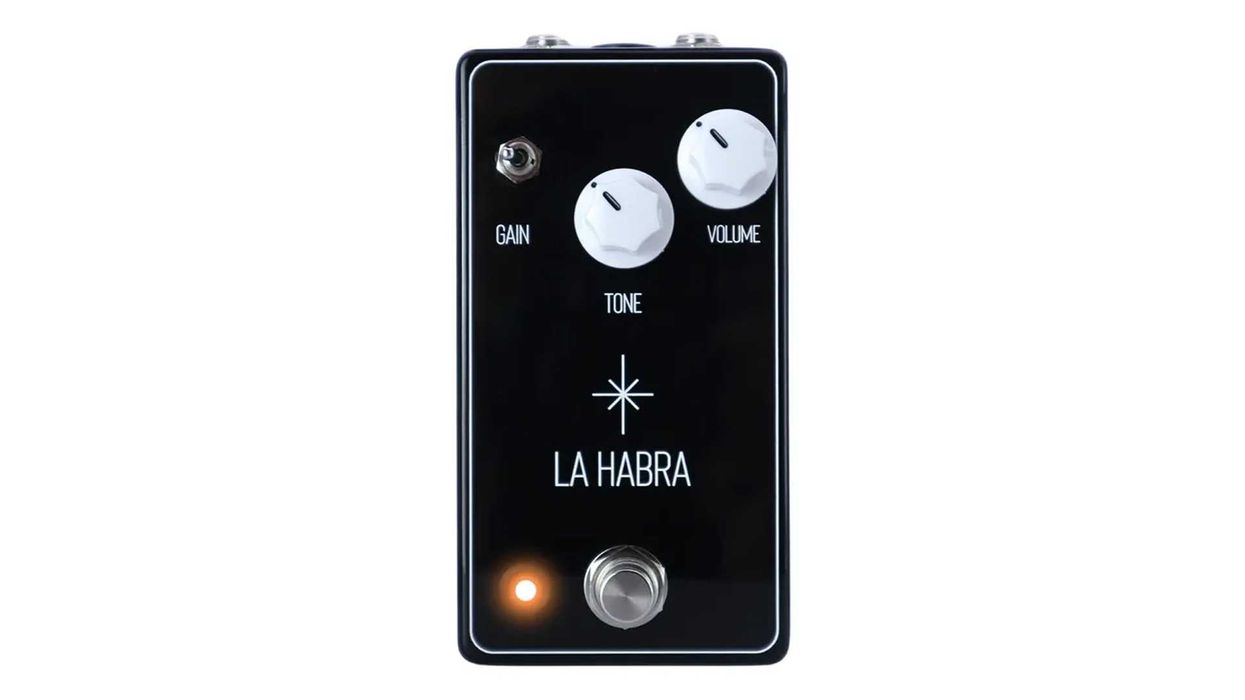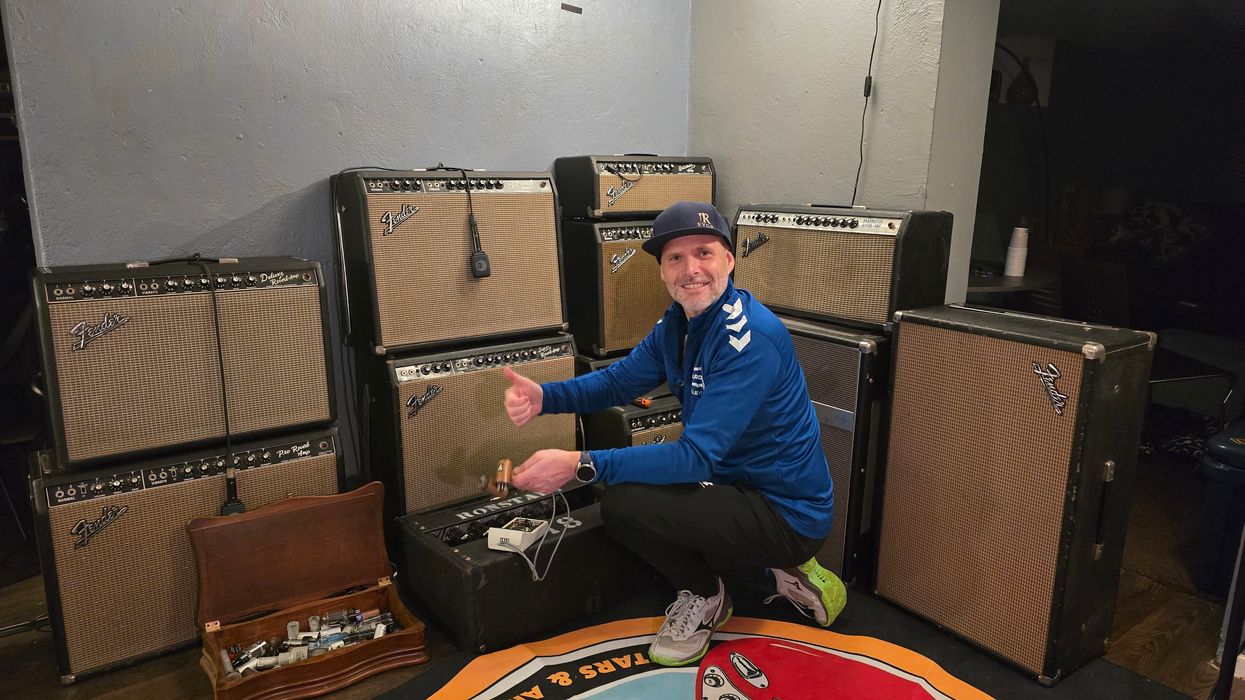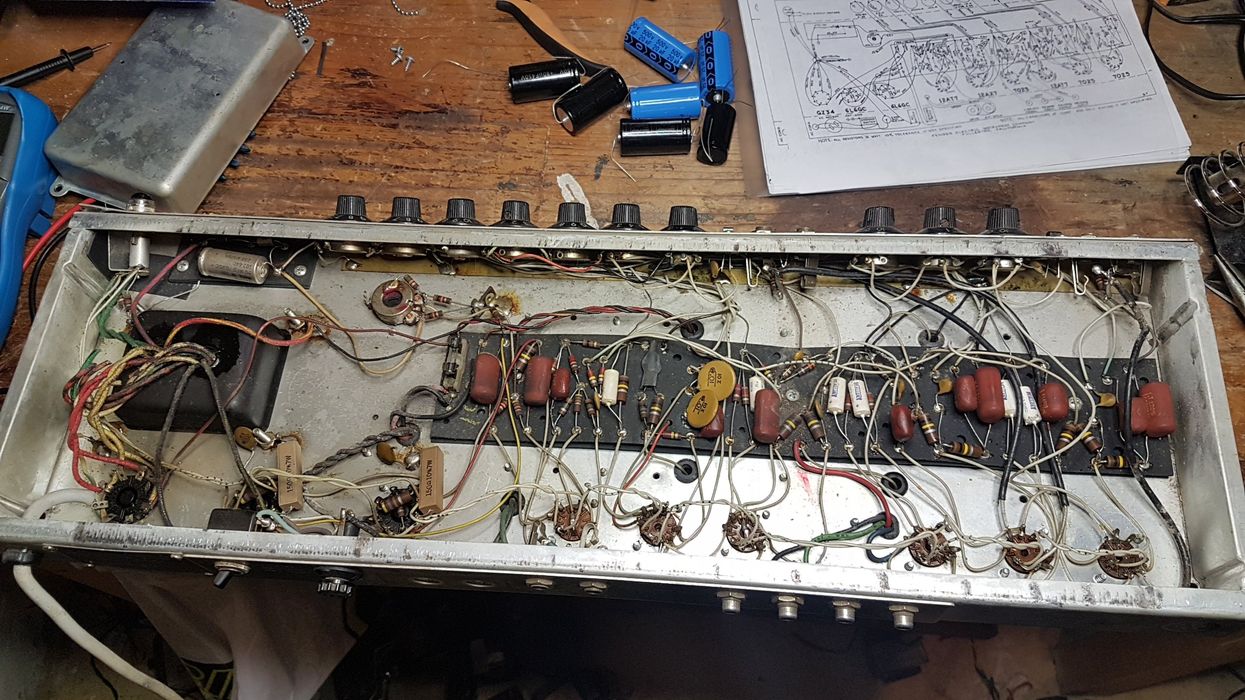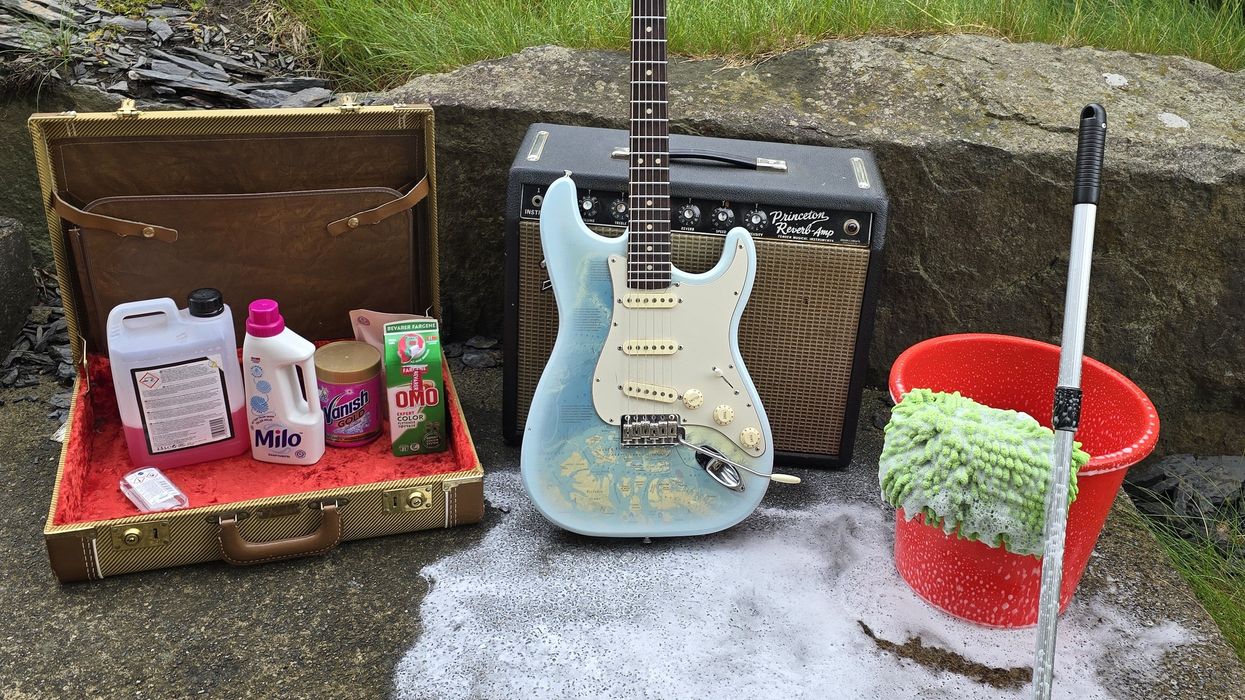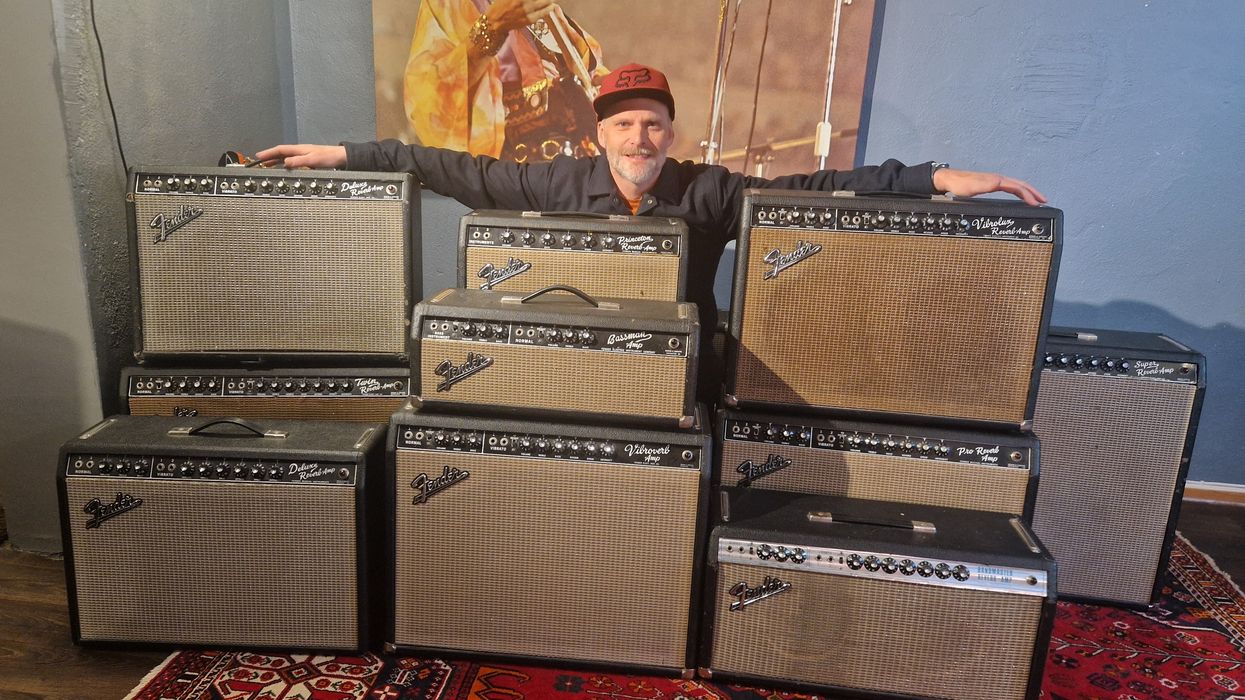In my July 2022 column, “Acoustic Guitars and Fender Amps,” I talked about using acoustic 6-strings with classic black-panel amps—particularly the bigger models with wide EQ possibilities. This month, let’s take it a step further and talk about Fender amps and resonator guitars. I will share what I have discovered by experimenting with various microphones, pedals, and more.
In a resonator, the metal cone underneath the front plate functions as a base for the bridge saddle and vibrates like a loudspeaker to project sound. Because of the instrument’s directional character and ease of feeding back, resonator guitars are difficult to use in live bands with loud stage volume. The goal is to get enough volume resonator onstage and in the room without feedback. Since it’s an important part of the instrument’s character, it’s necessary to capture some of that metal-cone voice within an overall balanced guitar tone that sits well in the mix. And you need to be able to achieve this in a way simple enough to reproduce the same tone night after night, and focus on your music, not technical problems.
The easiest way to mic a resonator guitar is to place a microphone on a stand about a foot in front of the guitar and run the signal into the mixer. But this pure acoustic route only works well in low volume situations—due to feedback—and requires you to play sitting down or standing still.
“Because of the instrument’s directional character and ease of feeding back, resonator guitars are difficult to use in live bands with loud stage volume.”
You can also use the type of clip-on microphone (often used for violin) made by Neumann and DPA, among others, to make you mobile, but if you get too close to the monitors or mains, feedback ensues. I recommend the microphones that come with a preamp and volume dial, to give you the most control. If you use one of these, point the mic directly toward the metal cone. Finding a nice tone will require some experimentation.
Another option is a piezo pickup. Some newer resonator guitars come with factory-installed piezos. It’s not very difficult to install a passive piezo yourself. You need to file and sand the bridge piece, detach the metal cone for wiring and soldering work, and, finally, drill a hole in the guitar where the jack plug goes in through the strap button. Getting the string tension correct over the entire length of the bridge saddle is the key to success. Lately, I have used hard oak as bridge material, which creates a smooth and mellow tone with bronze strings.
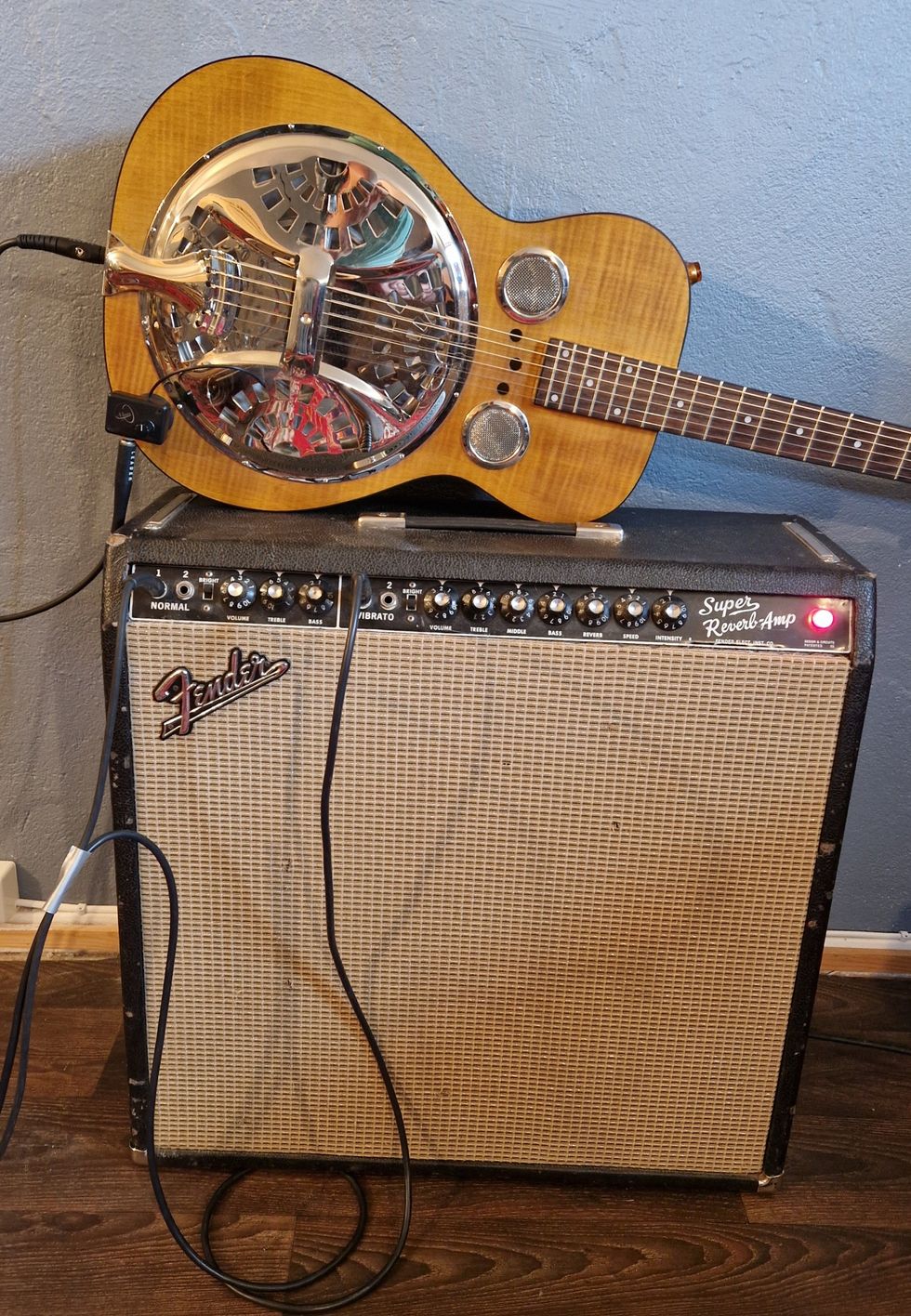
The author’s resonator “kit.”
Piezo pickups are less prone to feedback than acoustic microphones, so they are better for high-volume stage scenarios. But piezo pickups alone will not fully capture the tone of the resonator cone, so if you’re looking for more of that, add an acoustic clip-on microphone. That’s what I do. Both the piezo and the clip-on go to my Fender Super Reverb, and I use the normal channel for the feedback-sensitive acoustic microphone while the piezo goes to the vibrato channel with reverb. For dirty tones, I sometimes use an overdrive pedal for the piezo pickup. There are independent EQ and volume settings on both channels.
The third and last microphone technique I have experimented with is a humbucker. I bought one from 12 Bar Blues Pickups that is only 6 mm tall and built specifically for resonators. It fits nicely under the strings with enough clearance. The advantage with a passive magnetic pickup is obviously the simplicity. The installation process is easy if you simply tape or glue the pickup to your guitar and let the wire run externally on top of your resonator’s body. The kit I bought contains a small volume and tone box with jack input, and requires no battery. The result is, essentially, a hollow-body electric guitar suited for pedals and regular amps. It is also more resistant to feedback than both piezo and acoustic microphones. When I want to add some of the “bluegrass” flavor of the resonator cone, I add the acoustic microphone as mentioned earlier.
One drawback with conventional magnetic pickup technology is that bronze strings have a lower output, since bronze is less responsive to magnetic fields than nickel. I have kept the bronze strings on my resonators because of the great tone. To get even output on the bass strings, the bridge height measures a little higher on the bass side than the treble side.
So, there we have several different techniques for capturing modern resonator guitar tones, including a few options with guitar amps. Now, go experiment!
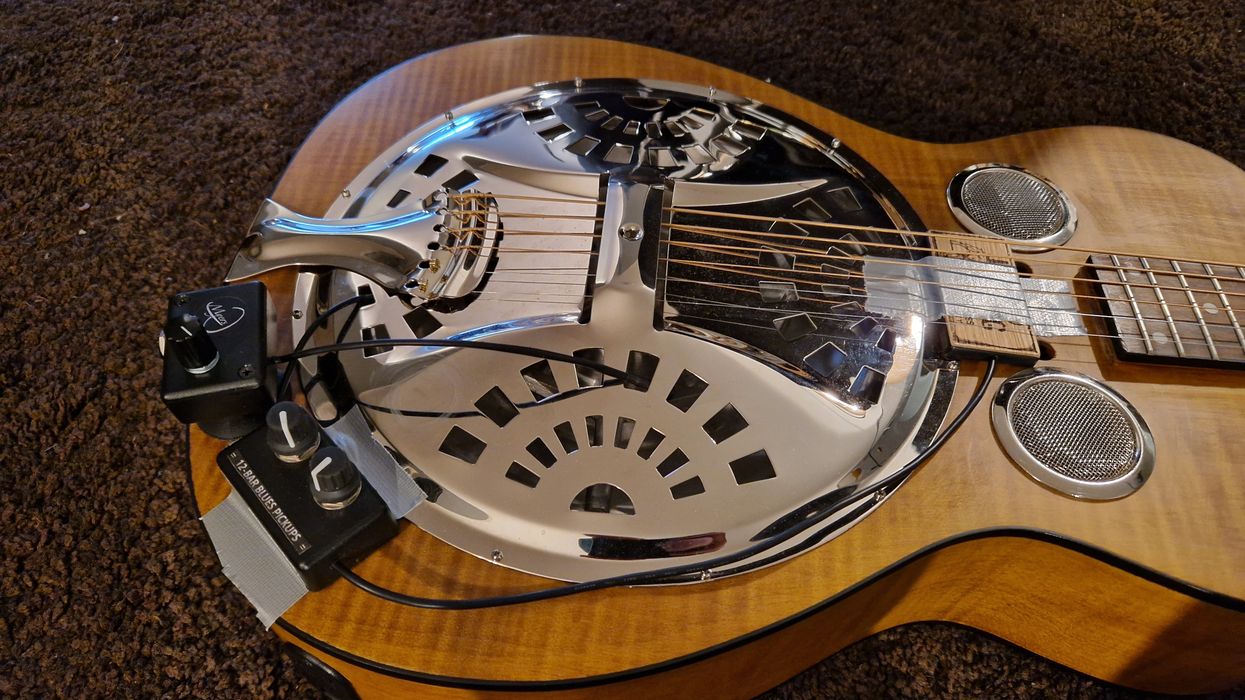

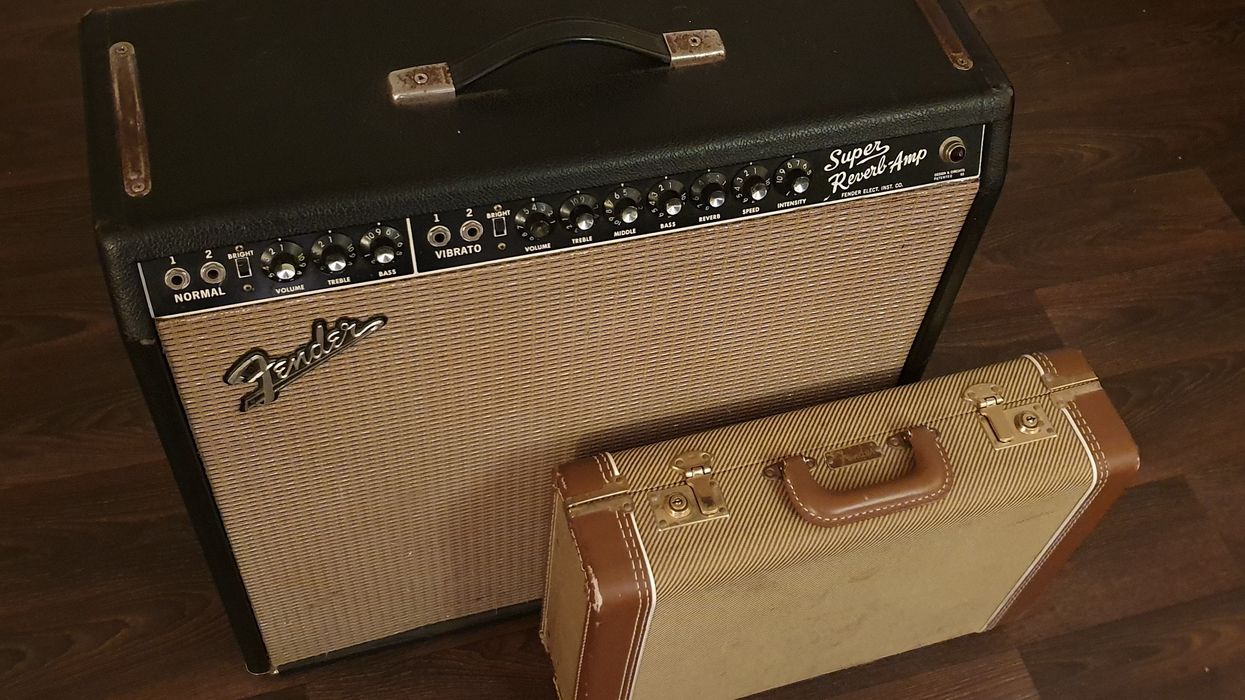
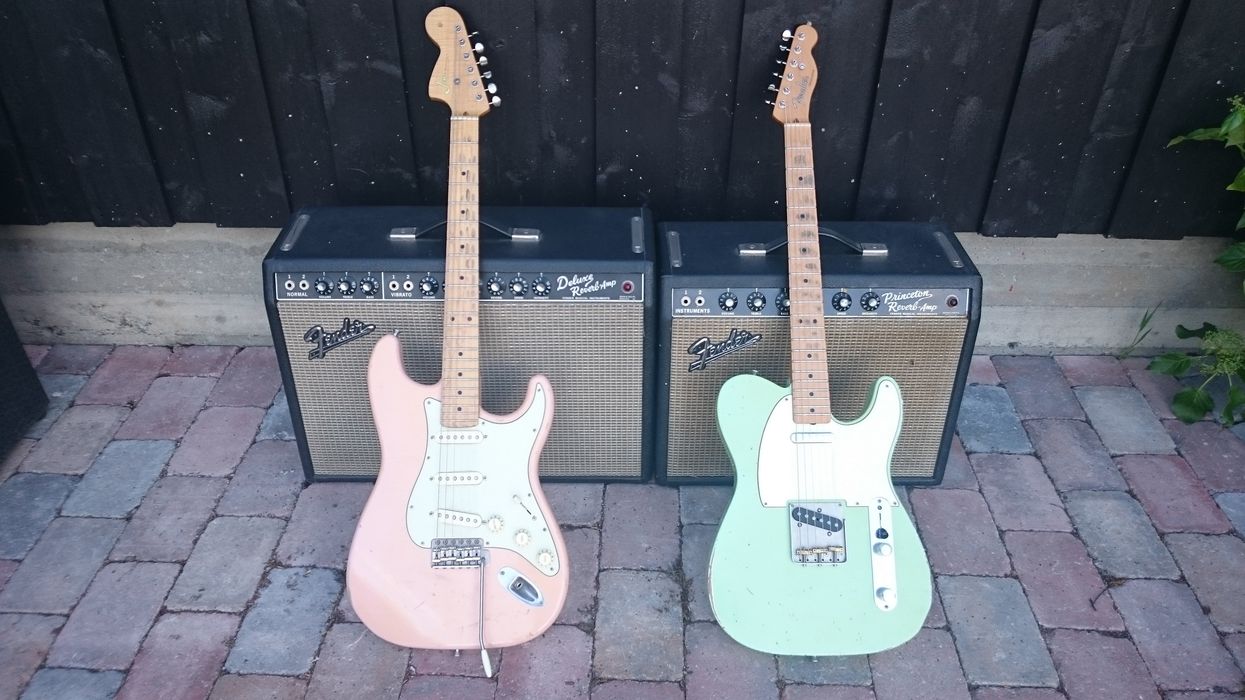
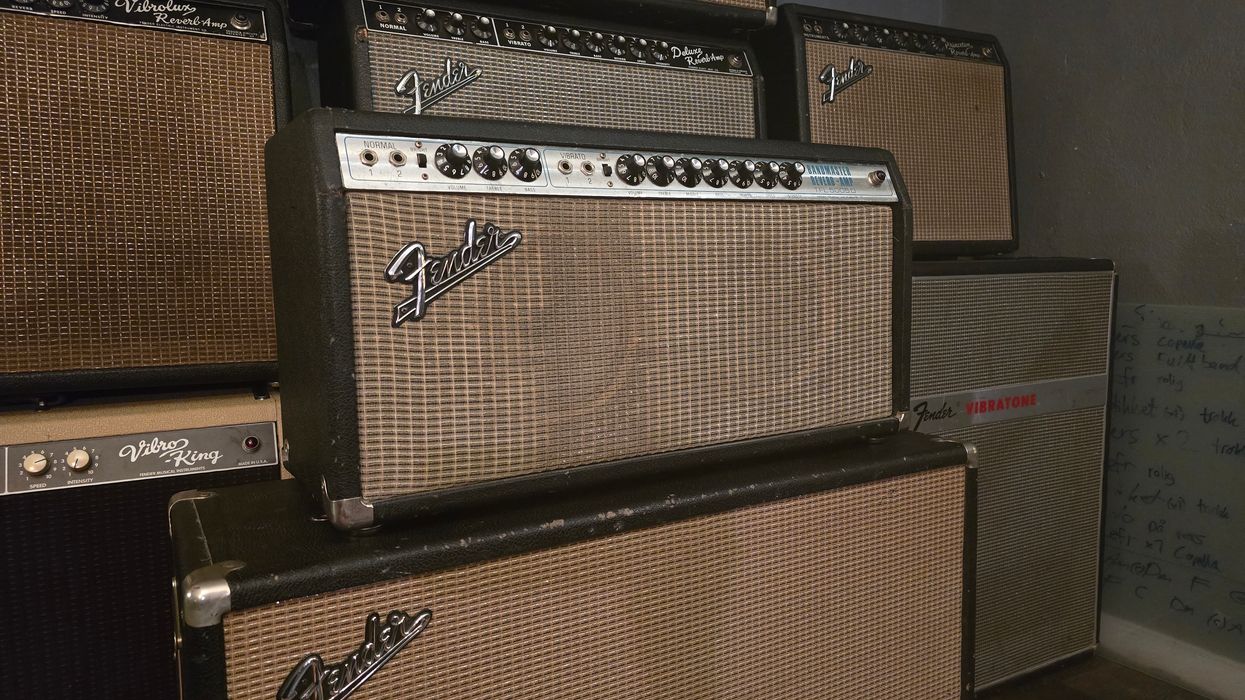
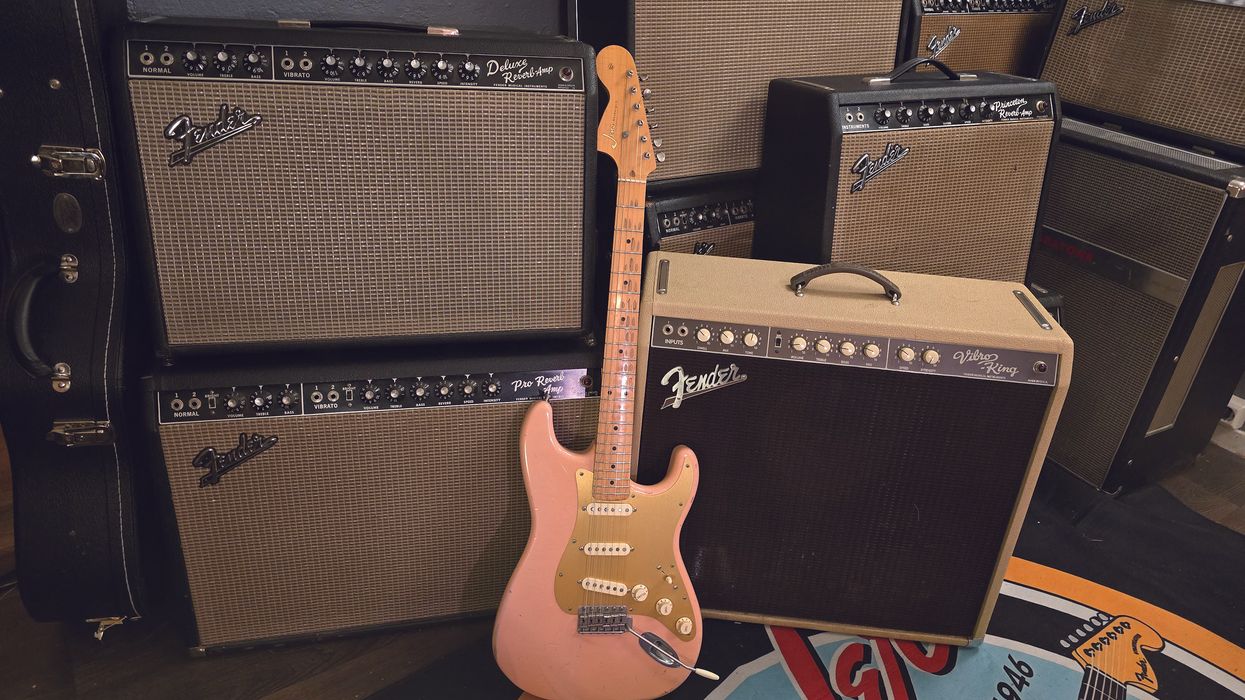
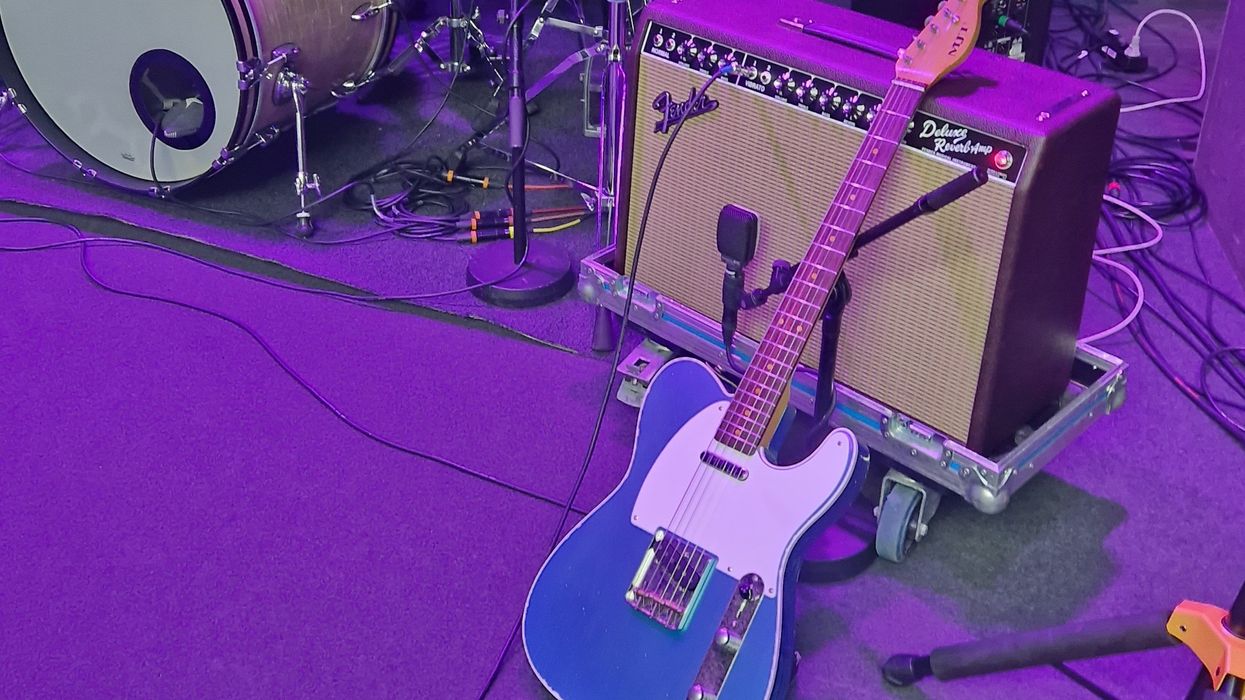
![Devon Eisenbarger [Katy Perry] Rig Rundown](https://www.premierguitar.com/media-library/youtube.jpg?id=61774583&width=1245&height=700&quality=70&coordinates=0%2C0%2C0%2C0)

